Days after celebrating Derek Chauvin verdict, Minneapolis to bury another Black man killed by police
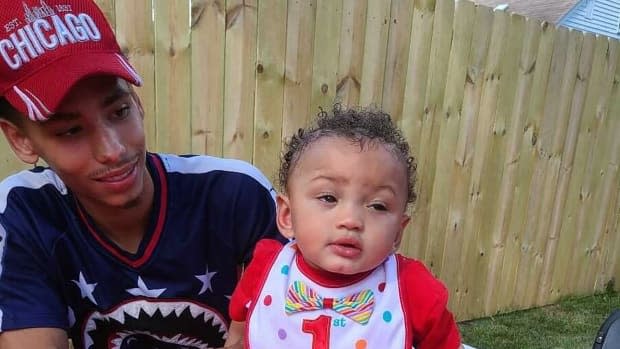
In the middle of a street in Brooklyn Center, Minn, as cars on either side zoomed by, Courtney Amborst took her brush and white paint and wrote D-A-U-N-T-E in big capital letters, a tribute to Daunte Wright, a 20-year-old Black man killed by a white police officer.
The first time she came to this specific spot, where Wright was killed April 11 and where makeshift memorials have been erected to honour him, she wrote his name in chalk. But chalk eventually washes away, and she wanted something permanent, something that would draw attention.
"I do not know him. You don't have to know him for it to reach your front door at any moment," Amborst said. "It could be my brother; it could be me; it could be my dad."
Mourners gathered to honour Wright Thursday at a funeral held at Shiloh Temple International Ministries in Minneapolis, about a 14-minute drive from the intersection where George Floyd was killed by former police officer Derek Chauvin last May. On Tuesday, a jury found Chauvin guilty of second-degree unintentional murder, third-degree murder and second-degree manslaughter.

For Amborst, and many members of the Black community in and around Minneapolis, the shadow cast by Wright's funeral is a sobering reminder that Chauvin's guilty verdicts were a temporary reprieve from the injustice they say they suffer at the hands of the city's police.
Wright's death during a traffic stop sparked protests outside the city's police station, with some demonstrators hurling objects at officers who have responded at times with gas and rubber bullets before clearing the scene with a riot line.
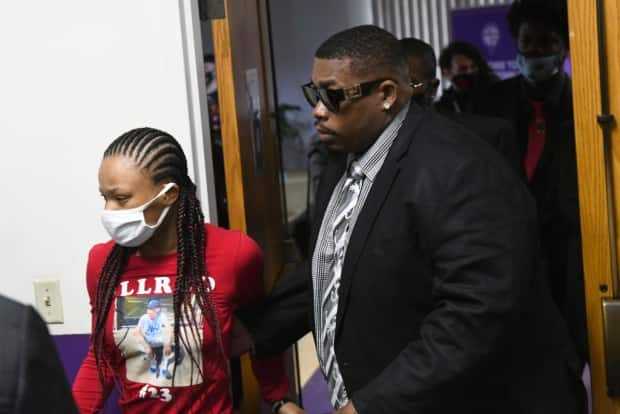
Police said they had pulled Wright over because his vehicle registration had expired and found he had an outstanding warrant. Footage from a police body-worn camera released after the shooting showed Wright slipping out of an officer's grasp as he tried to handcuff him and getting back into his car. Another officer is then heard saying, "I'll Tase you. Taser! Taser! Taser!" before shooting Wright.
The officer, Kim Potter, who said she had intended to fire her Taser, not her gun, resigned from the force and has been charged with second-degree manslaughter in connection with Wright's death.
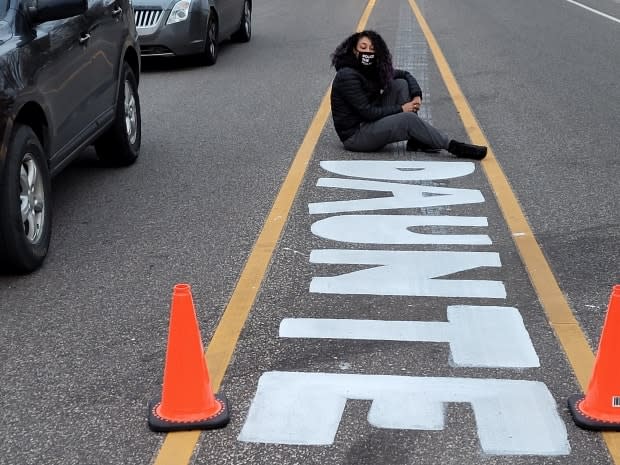
'Everybody could breathe for a second'
Amborst said Chauvin's guilty verdicts mean there is more work to do, especially as the city prepares to bury another Black man killed by police.
"We have spent all summer long, all 11 months fighting for a guilty verdict. And yesterday, when we heard guilty, guilty, guilty, it was like a sigh of relief," she said. "It was like everybody could breathe for just a second.
"But I woke up this morning, like, I've got more work to do. We have to keep up the pressure. You're happy on one end and on the other end, you're like, how many times is it going to happen? How long are you going to be out here?"
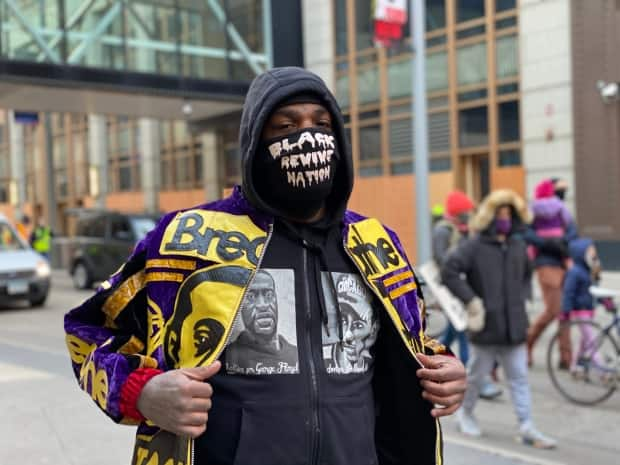
Similar sentiments were expressed by mourners who stood in line Wednesday inside the Shiloh Temple International Ministries for the public viewing for Wright.
With organ music playing in the background, friends and family members paused in front of his open casket, blanketed with red roses, crying and consoling one another, some stopping to touch Wright.
On an adjacent stage stood the church's pastor, Bishop Richard D. Howell; the Wright family's lawyer, Benjamin Crump, who also represented the Floyd family; and Reverend Al Sharpton, who will deliver the eulogy, as he did for the service of Floyd.
"This is a funeral that we shouldn't have to have," Sharpton said outside the church. And as much as I'm so happy to see what happened with the verdict, I can't celebrate."
Bad memories of past interactions with police
Tony Clark paused and wept as he stood in front of the open casket.
"I was emotional because I kept flashing. 'What if that was me in the car with my two sons, and I got shot. And there's no more me. I can't teach my son how to be a man."
Clark said the guilty verdicts for Chauvin don't erase the reality faced by Black men when it comes to law enforcement.
"A Black man — when a policeman catch us at a stoplight, that's a dead light."
He said he has sped from police, at times, rather than stop because he knows, if caught, the encounter could be fatal.
"I've been on a high-speed chase because we know what we know — once they catch you, they're going to use every element to try to say, 'Oh, he have a gun or my life was threatened.'"
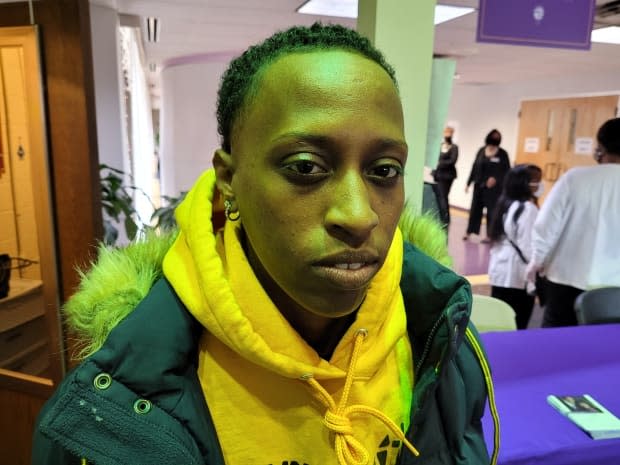
Ashley Henderson, 30, a community outreach worker, who didn't know Wright but came to his visitation, said that she, too, has had negative interactions with the police. In some, she has feared for her life.
"And of course, that leaves the stain or wrinkle, if you will, in your memory."
Henderson echoed Amborst who said Chauvin's guilty verdicts are a signal that more work needs to be done.
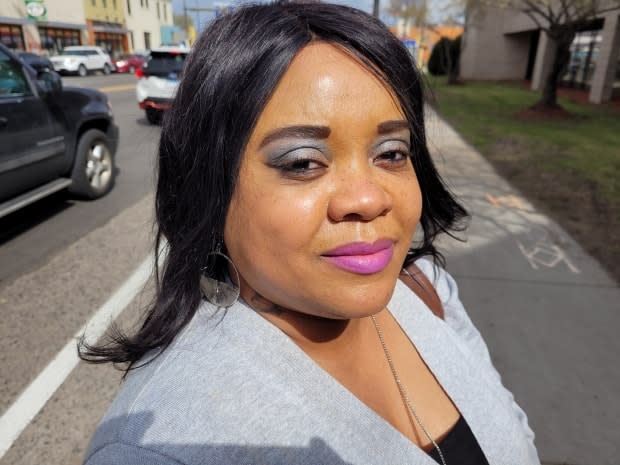
Feared sons 'are going to be next'
Loretha King also came to pay tribute to Wright, whose death she said makes her more outraged and frustrated over the way the justice system and the police have been handling "our young black men."
As a mother, King said she's in constant fear that her sons "are going to be next."
King, 49, said she was a single mother, raising three sons and a daughter. She recalled the times she would be working and her sons would call and tell her that the police had pulled them over.
"Leaving work, my heart's racing because I don't know what's next," said King, who works as a scheduler at the University of Minnesota Physicians group practice.
Like others, King said the guilty verdicts following Chauvin's trial provided some comfort, some solace, but "it's just the beginning."
"I don't think that it's going to stop until laws are actually changed, that our young Black men will continue to be racially profiled."

